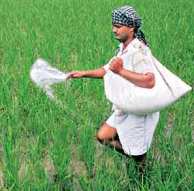
India should work closely with the seven-nation BIMSTEC grouping to conclude trade negotiations and attempt early ope-rationalising of the Bay of Bengal free trade agreement (FTA) to give a big push to trade in the region, an ASSOCHAM study said today.
“BIMSTEC FTA may help activate production links among member countries and help in rationalising various non-tariff measures (NTMs) which would give big push to regional trade and generate regional value chains,” highlighted the ASSOCHAM study titled ‘BIMSTEC Economic Integration: Opportunities and Challenges.’
The study was jointly released by Ms Preeti Saran, secretary (East), Union Ministry of External Affairs and Bangladesh state minister for foreign affairs, Mr Shahriar Alam at ‘7th ASSOCHAM-BIMSTEC Business Forum,’ along with ASSOCHAM president, Mr Sunil Kanoria; chamber’s secretary general, Mr D.S. Rawat and Mr Sumith Nakandala, secretary general, BIMSTEC.
“To achieve ‘trade and connectivity,’ the FTA, which has been under negotiations since the inception of BIMSTEC needs to be accomplished and all other areas of cooperation will follow once the member countries are connected and trade and commerce flourishes,” noted the study.
“What BIMSTEC needs is firm handholding and visionary leadership that can harness these resources for its own good,” it added.
There is also the need to focus on trade facilitation through transport efficiency in maritime and land transport, regulatory environment and service sector infrastructures like electronic documentation, harmonising regulations and others.
The study further said that there is a need to liberalise trade and investment measures in services considering the lack of adequate physical infrastructure in the region, more so as services exports are performing well compared to manufactured exports that are more dependent on infrastructure.
It also suggested that the BIMSTEC countries should work on Single Window facility that allows parties involved in trade and transport to lodge standardized information and documents with a single entry point to fulfil all import, export, and transit-related regulatory requirements.
Elimination of non-tariff barrier within a mutually agreed timeframe, reduction in negative list to unlock trade potential, introduction of transit facilities to promote effective intra-BIMSTEC trade, improvement in regional connectivity and introduction of a BIMSTEC visa to facilitate movement of people particularly for investors and businessmen are certain other key recommendations of the ASSOCHAM study.
In her address at the ASSOCHAM summit, Ms Saran said, “Members of BIMSTEC have been struggling to negotiate a successful free trade agreement which has over the years been overtaken by other instruments which has been somehow disincentive for a greater push on this FTA.”
“Even as we strive together to open our borders to free trade in goods. I think the potential for the future lies in investments in the services sector,” said Ms Saran.
“There is a memorandum of understanding (MoU) on establishment of a BIMSTEC technology transfer facility also under negotiation which has the potential to assist small and medium enterprises (SMEs) in sharing their experiences in capacity building, technology evaluation, market assessment and intellectual property management,” she said.
Highlighting that the Bay of Bengal is home to over 30 per cent of world’s fishermen, Ms Saran said that sustainable development and modernisation of fishing industry in the region can contribute substantially in improving standards of living of our people.
“I would urge to look at potential of development of marine resources in agriculture, particularly in the fisheries sector.”
Talking about role of financial co-operation for boosting intra-regional trade and investment she said, “Financial co-operation may eventually cover currency swap agreements, pooling of reserves by the Central Banks, exchange rate co-ordination mechanisms, regional supervisory institutions, regional payment agreements and establishment of regional development banks and regional bond markets to boost access to long-term financing.”
Terming terrorism as a major challenge to region’s economic growth and development, Ms Saran said, “What we together as BIMSTEC need is a concerted action to deal with terrorism including dismantling of structures of terrorism, trainers of terrorism and isolate those who sponsor, finance and train these terrorists.”
Pushing for early realisation of BIMSTEC FTA to promote trade and investment, Bangladesh state minister, Mr Alam said, “We would also like to see negotiation on investment in services be fast-tracked to run parallel to the negotiations on trade in goods.”
He said that in order to sustain the economic growth we need to secure a stable and affordable energy supply through exploration of regional energy resource potential.
“We expect to sign the MoU on BIMSTEC Energy and Grid Interconnection which will help to foster co-operation in energy sector,” said the minister.




Leave a Reply
You must be logged in to post a comment.